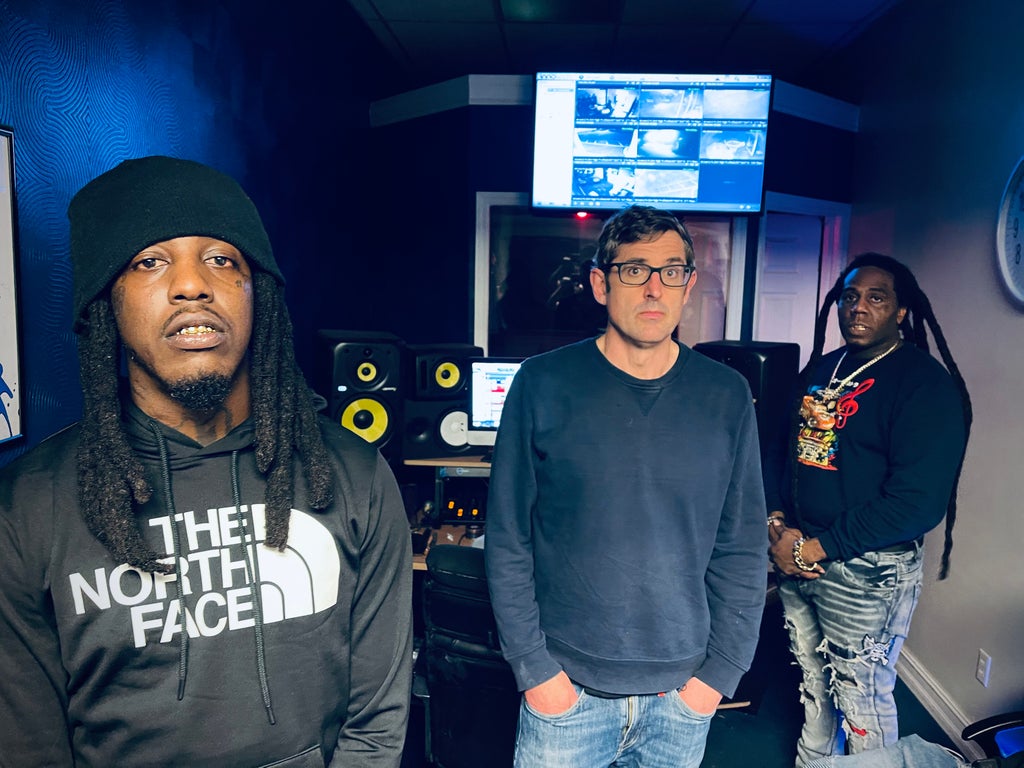
Many people, Americans and foreigners alike, consider Florida the most temperamental, divisive state in the union. It is a place of sandy beaches, Disneyland, gators and space shuttle launches. It has huge communities of immigrants and retirees, and wild disparities between the rich and the poor. It is, in short, exactly the sort of place you’d expect Louis Theroux to head.
Theroux’s brand of investigative documentary filmmaking works best in this crucible of opposing forces. Here in a programme titled Rap’s New Frontline, Theroux challenges the narratives around gun crime and drugs as they intersect with Florida’s rap scene. It is the perfect subject for Theroux, who made his name with Weird Weekends and is always most at home when the subject has a hint of farce. His documentaries have at times struggled to toe that line, grappling with overly bleak subject matter (such as LA Stories: Edge of Life, looking at critical care in a Los Angeles hospital) or lack of access, which hamstrung his feature film, My Scientology Movie.
Forbidden America is an ideal synthesis of the things that make Theroux a great documentarian. His subjects have enough media savvy to want to talk to him, but not enough to know when to keep quiet (“I can’t say whether it was or not,” trap artist LPB Poody tells Theroux when quizzed on a fatal diss track, “but… definitely”). They are larger than life characters, ranging from the Cuban-American “Soundcloud” MC Broke Baby (who provides one of the great hot mic moments since The Jinx or Gordon Brown), to the plaintive, imprisoned rapper Foogiano, and the acclaimed trap artist Hotboii, who seems genuinely disarmed by Theroux’s interrogative style.
And that style is the key. People rather banally claim that Theroux offers his interviewees just enough rope to hang themselves, but that’s an analysis that rather ignores his evolution as a documentarian. He is actually extremely direct, but with an unexcitable receptivity that, crucially, makes his subjects feel heard. It is a far cry from the awkward, mumbling and bumbling Theroux of his early documentaries; in fact, he exudes confidence now. Maybe being a 6ft 2in rich white man provides some assistance. But, whatever the reason, the sense of Theroux being a naïf thrown out of his depth is long gone.
Perhaps Rap’s New Frontline’s finest moment comes when Theroux sits down to interview the rapper 9lokkNine, alongside his lawyers (he’s facing an attempted murder charge). It deftly encapsulates the tension between the seriousness of the issues faced (gun crime, gang violence, drug abuse) and the hysterical – almost ironically so – pitch that it’s all presented at. The juxtaposition is brought into sharpest relief as Theroux takes “Glock” to task on the lyrics to his song “Crayola”, which the rapper insists is about, well, crayons. “You did a rap song about crayons?” Theroux asks, incredulously. “You blew up with a rap song that was about colouring?” The exchange is laugh-out-loud funny, an example of the show’s lethal unseriousness. One minute later they’re watching CCTV of the drive-by shooting, the reason Glock has been in jail and why his lawyers are in the room.
This new Theroux has a gravity that makes him impervious to embarrassment. Where previously his rather shameful nerdiness was the source of the humour (and he does in this, once again, deliver a short rap) the joke is now that he is unapologetic about being a middle-class father of three. At one point he asks N.F.L Von, a rapper under house arrest, why he carries so much cash on him, and doesn’t put it into a bank. “What if someone scams me?” Von replies. “Well, you’ve got to look at what the rates of interest are,” Theroux deadpans back. For all the braggadocio that he encounters, it is his subjects who end up contorting themselves to his personality: the results are simultaneously shocking and hilarious.







